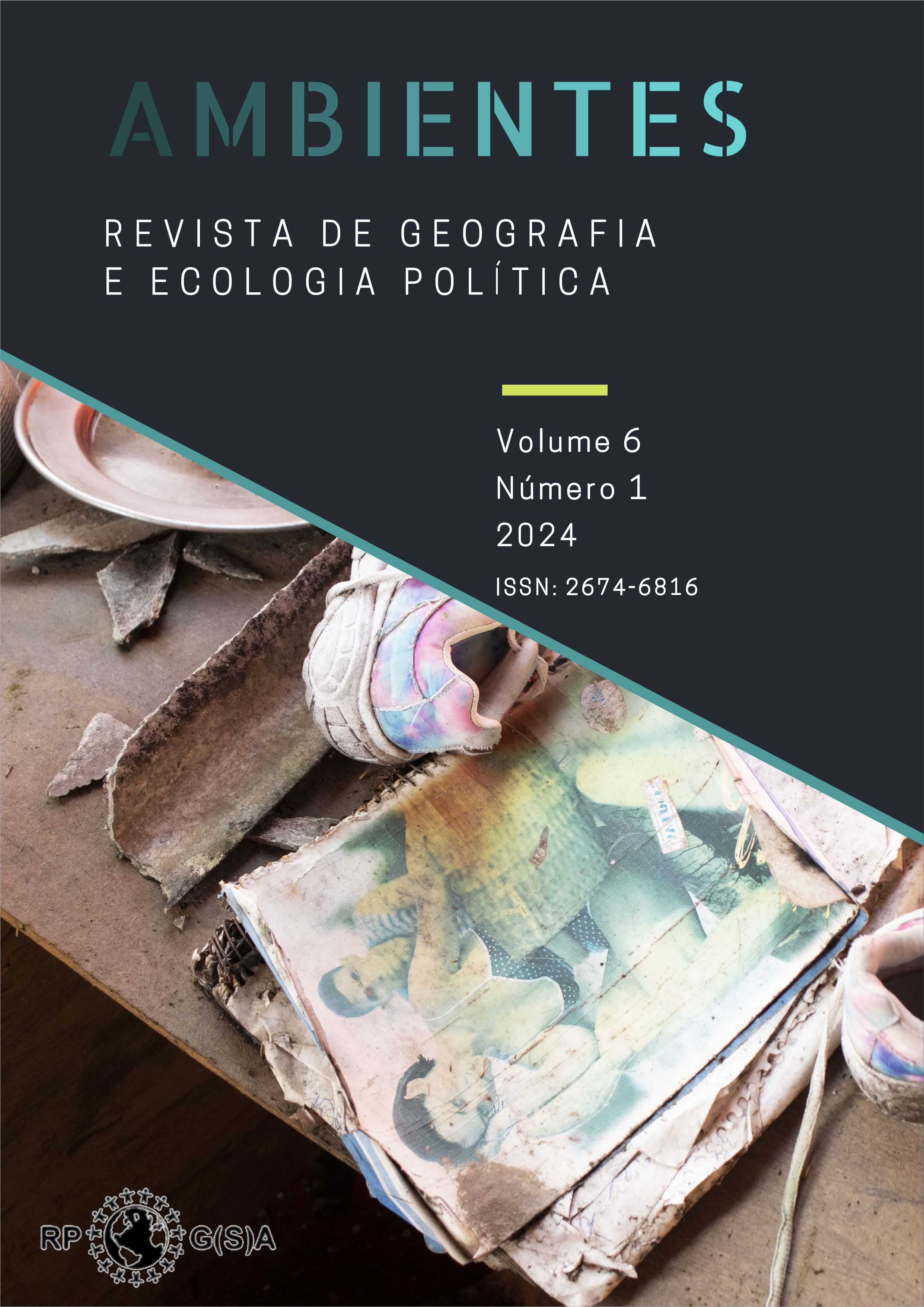Gênero, neoextrativismo e agroecologia: Perspectivas feministas sobre os conflitos ambientais
Gender, neoextractivism and agroecology: Feminist perspectives on environmental conflicts
DOI:
https://doi.org/10.48075/amb.v6i1.33158Abstract
The ways of life of traditional, peasant and family farming peoples and communities and various other local, urban and rural groups, with their specific forms of material and symbolic appropriation of nature, have been increasingly exposed to the logics of capitalist and mercantile extraction of labor and nature, resulting in environmental conflicts that impact their territories in different ways. In the 21st century, neo-extractivism expresses this particular form of capitalist dispossession, with strong state involvement. In the field of studies on environmental conflicts and neo-extractivism, the use of the "class" variable as an explicative dimension of environmental inequalities predominates and, as a result, the notable under-representation of important analytical categories such as gender, race and ethnicity. In order to reposition these analyses, the article takes a feminist perspective on the way in which neo-extractivist projects penetrate territories and combines an approach, at different scales, to the resistance led by women. Specifically, we look at how the advance of mining in the Zona da Mata region of Minas Gerais has affected the lives of communities, and of women in particular, as well as the ways in which these subjects have responded to this threat. Faced with a hegemonic masculinity that is trying to impose itself, we affirm the leading role of women in an active and decisive resistance to the dispute over territories, operated on different interconnected scales. As responses and alternatives to the neo-extractivist projects that threaten communities, we see that, in the process, agroecology has been adopted as a narrative and as concrete practices by women.
Downloads
Published
How to Cite
Issue
Section
License

This work is licensed under a Creative Commons Attribution-NonCommercial-ShareAlike 4.0 International License.
Aviso de Direito Autoral Creative Commons
Política para Periódicos de Acesso Livre
Autores que publicam nesta revista concordam com os seguintes termos:
1. Autores mantém os direitos autorais e concedem à revista o direito de primeira publicação, com o trabalho simultaneamente licenciado sob a Licença Creative Commons Attribution que permite o compartilhamento do trabalho com reconhecimento da autoria e publicação inicial nesta revista.2. Autores têm autorização para assumir contratos adicionais separadamente, para distribuição não-exclusiva da versão do trabalho publicada nesta revista (ex.: publicar em repositório institucional ou como capítulo de livro), com reconhecimento de autoria e publicação inicial nesta revista.
3. Autores têm permissão e são estimulados a publicar e distribuir seu trabalho online (ex.: em repositórios institucionais ou na sua página pessoal) a qualquer ponto antes ou durante o processo editorial, já que isso pode gerar alterações produtivas, bem como aumentar o impacto e a citação do trabalho publicado (Veja O Efeito do Acesso Livre).
Licença Creative Commons
Esta obra está licenciada com uma Licença Creative Commons Atribuição-NãoComercial-CompartilhaIgual 4.0 Internacional, o que permite compartilhar, copiar, distribuir, exibir, reproduzir, a totalidade ou partes desde que não tenha objetivo comercial e sejam citados os autores e a fonte.


